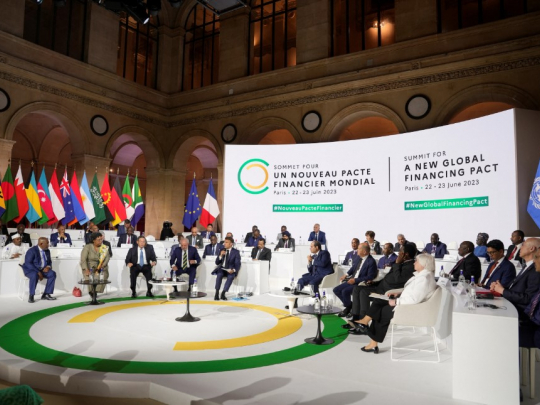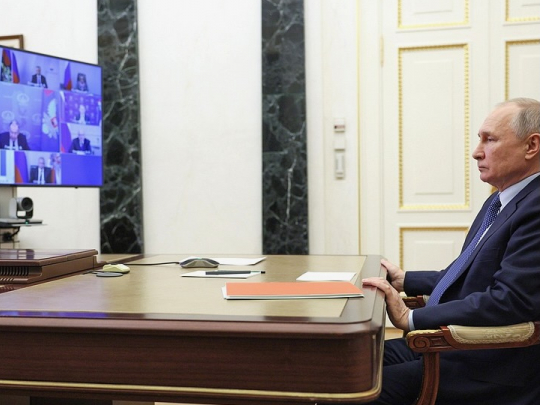The Libyan GNA, led by Faiz Saraj, should “know its place”, an official source in the Egyptian Ministry of Foreign Affairs said, commenting on harsh statements by Saraj representatives towards the President of the Arab Republic of Egypt Abdel Fattah al-Sisi.
“They need to know their place, they need to understand the reality of their size in Libya and know who they are talking to. Egypt shows great patience, but it will be extremely firm in the face of any violation or attempt to encroach on its national interests and security,” the Egyptian Foreign Ministry said.
n response to such a statement of the Egyptian foreign affairs ministry, the Libyan GNA Ministry of Defense stated that the GNA would continue to take steps to “liberate” the port city of Sirte from the LNA and Marshal Khalifa Haftar, despite warnings from the Egyptian side.
“No ‘red lines’ can interfere with our forces advancing on Sirte,” the GNA Deputy Minister of Defense Salah ad-Din al-Namrush said in an interview published on June 25 by the Turkish state news agency Anadolu.
It is worth to point out that on June 6 the President of Egypt Abdel Fattah al-Sisi put forward his peace plan, which actually aims towards the cessation of hostilities and the return of the LNA commander Marshal Khalifa Haftar and the GNA head Faiz Saraj to the negotiating table, after a series of military defeats of the LNA near Tripoli.
According to the head of the Egyptian state, his plan would mean the speedy settlement of the crisis in Libya and the return to normal life in the country.
“The proposed initiative calls on all the parties of the Libyan conflict to establish a ceasefire starting from June 8,” Abdel Fattah al-Sisi said at a joint press conference in Cairo with the commander of the LNA Marshal Khalifa Haftar and the speaker of the Libyan House of Representatives (elected permanent parliament located in Tobruk) Akila Saleh. The initiative, called the Cairo Declaration, is exclusively inter-Libyan, Abdel Fattah al-Sisi explained.
Meanwhile, Khaled al-Meshri, the head of the legislative assembly acting on behalf of the GNA leader Faiz Saraj, said that Libyans did not need any new initiatives and rejected Haftar’s attempt to return to negotiations after the military defeats near Tripoli.
Moreover, it is important to recall that on June 4, on the eve of the announcement of the Cairo initiative by the Egyptian authorities, Faiz Saraj arrived in Ankara for a “working visit”. There he met Turkish President Recep Tayyip Erdogan and, according to results of the meeting, it was stated that Khalifa Haftar “has no right to be represented at the table of inter-Libyan negotiations”.
Thus, the peace plan of the Egyptian President was supported by quite a few countries, but certainly not Turkey. In fact, Turkish authorities have never ceased their interference in the Libyan conflict and show of support for the GNA party. Furthermore – Turkey has stated that the intervention of the country in the military conflict in Libya has legal grounds and does not violate international law.
On June 26, Turkish Minister of Defense Hulusi Akar told the ?hlas Haber Ajans? news agency that Turkey’s presence in Libya began back in 2010. Akar noted that this happened and is happening within the framework of agreements already reached, and the head of the Government of National Accord Faiz Saraj “personally addresses the Turkish president and has asked him to send the military, so interference in the conflict is justified.”
Turkey therefore uses this argument to create a full-scale intervention in Libya. On June 14, Libyan newspaper The Libyan Observer reported that Turkey intends to open two military bases in Libya.
According to the sources of this news agency, within the framework of military-technical cooperation, Ankara will deploy air defense systems and drones at the base Al-Vatiyya in the western part of the country. Turkish military forces will also be located at a base near the city of Misurata. In addition, Turkey intends to organize naval missions off the Libyan coast in order “to prevent threats to the country from the sea”. As part of the cooperation between Ankara and Tripoli, Turkey also plans to begin exploration and drilling for oil.
Such ambitions displayed by the Turkish government are not welcomed at all by its NATO partners. In particular, France showed its growing irritation caused by the incident in the Mediterranean Sea.
On June 10, seven Turkish ships tried to deliver military equipment off the Libyan coast in violation of the arms embargo against Libya established by the UN Security Council. The French navy frigate Courbet, which was at that time on duty as part of the NATO mission “Sea Guard”, intervened in this nefarious activity, and in response the Turkish ships daringly aimed their strike systems at the French ship.
The President of France Emmanuel Macron commented on the incident, stating that “Turkey plays a dangerous game in Libya” and that France “will not tolerate this game”.
Greece is also openly expressing their discontent over Turkish external policy. Greek Foreign Minister Nikos Dendias said that Turkey “undermines security and stability in the Eastern Mediterranean, violates the sovereignty of Libya, Syria, Iraq and Cyprus”.
He made this statement at the end of the visit, along with EU High Representative for Foreign Affairs and Security Policy, Josep Borrell, in the town of Kastanies in the Evros region on the border with Turkey. Dendias noted that Turkey has actively been dispatching migrants, encouraging them to cross the border into the EU, but “an attempt to blackmail failed”.
The opinion that Erdogan’s foreign ambitions are becoming too aggressive and dangerous for Europe, is now shared by German politicians. The AfD Bundestag Member Stefan Keuter had continually expressed his concern about Turkish foreign policy – he believes that Erdogan’s activities had repeatedly proven to be “a fire accelerant, especially with regard to illegal migration to Europe”.
“It is with great concern that not only I, but many of my parliamentary colleagues are watching Turkish activities, and not only in Libya…. Everything that Erdogan does in foreign policy has a direct impact on Europe – and on Germany. Unfortunately, mostly very bad ones.”



















